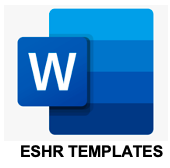THE EVALUATION OF A SMOKE-FREE AREA DECLARATION PROGRAM TO CREATE A HEALTHY CITY AT PUSKESMAS GONDOKUSUMAN
DOI:
https://doi.org/10.26555/eshr.v1i1.934Keywords:
Evaluation, Healthy city, Smoke-free area.Abstract
Background: Indonesia is experiencing a major health challenge, that is triple burden diseases (communicable diseases, non-communicable diseases, and reemerging diseases). One of the programs established by the government to face the threat is Healthy Lifestyle Community Movement (Gerakan Masyarakat Hidup Sehat or GERMAS). The declaration of the smoke-free area is one of the efforts of the Government on this movement aimed to have smoke-free homes to create a healthy city. However, the monitoring and evaluation of the program do not run well. The goal of this research is to provide a description and analysis of the implementation of the smoke-free area declaration program.
Methods: This was qualitative research. The subjects or main informants of this study were the people in charge of the smoke-free area declaration program and the head of the clinic at Puskesmas Gondokusuman 2. The supporting informants in this study were the community declaring the program as well as the elite figures of the community involved in the declaration. The method of primary data collection was through in-depth interviews, observation, and review documentation. The implemented analysis technique was content analysis.
Results: The inputs of the smoke-free area declaration program were measured from the human resources, fund, facilities, organization, information, and guidelines. Further, the process of the smoke-free area declaration was viewed from the community roles, community responses, and reports. However, there was a shortcoming of the process variable, i.e. the in-existence of written reports done by the head of the program. Furthermore, the output variables were observed from the commitments, impacts on society, and the comprehensiveness of the reports.
Conclusions: Based on the analysis, the inputs of the program were considered as well. The outputs of the program were considered to be positive.
References
Kementerian Kesehatan RI. Germas wujudkan indonesia sehat. GERMAS. 2016;1-9.
Kementerian Kesehatan Republik Indonesia. Warta KESMAS. Gerak Masy Hidup Sehat. 2017;01.
Sistem Informasi Promosi dan Pemberdayaan Masyarakat-Dinas Kesehatan Kota Yogyakarta. Wilayah Kita Mau Sehat? Ayo Ikuti Program Si Kesi Gemes. Gerak Masy Hidup Sehat. 2018.
Pemerintah Kota Yogyakarta. Peraturan Daerah Kota Yogyakarta Nomor 2 Tahun 2017 Tentang Kawasan Tanpa Rokok. 2017;1-18.
Pemerintah Kota Yogyakarta. Peraturan Daerah Kota Yogyakarta Nomor 7 Tahun 2017 tentang Penataan dan Pengendalian Menara Telekomunikasi dan Fiber Optik. 2017.
Indonesia KKR. Pedoman Pengembangan Kawasan Tanpa Rokok. 2011.
Nizwadi Azkha. Studi Efektivitas Penerapan Kebijakan PERDA Kota Tentang Kawasan Tanpa Rokok ( KTR ) Dalam Upaya Menurunkan Perokok Aktif di Sumatera Barat Tahun 2013. J Kebijak Kesehat Indones. 2013;02(04):171-9.
Ade Retsy Ambar Wati. Penerapan Kawasan Tanpa Rokok Berdasarkan Peraturan Daerah Kota Metro Nomor 4 Tahun 2014. J Huk. 2014.
Juanita. Kebijakan Kawasan Tanpa Rokok: Peluang dan Hambatan. J Kebijak Kesehat iIdonesia. 2012;01(02):112-9.
Hamdan SR, Putri W. Faktor Kontrol Perilaku Merokok Pada Anak Sekolah Dasar. Pros Semin Nas Penelit dan PKM Kesehat. 2015;9-14.
Diah Wijayanti Sutha. Analisis Lingkungan Sosial Terhadap Perilaku Merokok Remaja di Kecamatan Pangarengan Kabupaten Sampang M
Downloads
Published
Issue
Section
License
Copyright (c) 2019 Desi Nurfita, Rokhmayanti Rokhmayanti, Helfi Agustin, Sandheep Sugathan

This work is licensed under a Creative Commons Attribution-ShareAlike 4.0 International License.
Authors who publish with ESHR agree to the following terms:
- Authors retain copyright and grant the journal right of first publication with the work simultaneously licensed under a Creative Commons Attribution License (CC BY-SA 4.0) that allows others to share the work with an acknowledgment of the work's authorship and initial publication in this journal.
- Authors are able to enter into separate, additional contractual arrangements for the non-exclusive distribution of the journal's published version of the work (e.g., post it to an institutional repository or publish it in a book), with an acknowledgment of its initial publication in this journal.
- Authors are permitted and encouraged to post their work online (e.g., in institutional repositories or on their website) prior to and during the submission process, as it can lead to productive exchanges, as well as earlier and greater citation of published work.











